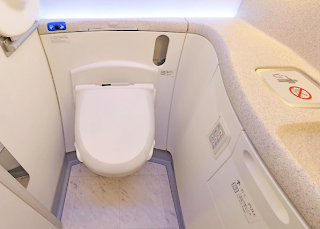some frequent-flier basics (part one)
A good friend was considering getting into the points game so I spent some time writing down a few of the basics. I realized how much I'd learned over the past couple of years and how many of my own misconceptions were shared by many, many others out there on various frequent flyer forums so I'm starting at square one here:
- Most Airlines have some kind of loyalty program where you're awarded miles (sometimes called "points") based on
how far you flyhow much your flight costs. (UPDATE: In 2015 most of the US carriers switched their plans around so you earn points based on ticket cost instead of distance). - Some airlines give you bonus miles if you buy an expensive ticket (like business class), others give fewer miles (e.g., 50% of the distance flown) if you buy a steeply discounted ticket. Some also award bonus points if you have Elite Status with them.
- You can also earn miles when you fly with a partner airline (e.g., you can earn United miles when you fly with Lufthansa because they're partners).
- On top of the point game, most also offer some type of Elite Status. The short story here is: don't bother. Unless your work is paying for your tickets Elite Status isn't worth chasing. The airlines have become shameless in gutting Elite benefits and drastically changing Elite qualifications with no notice. Don't bother.
- Only the person who actually flies gets to keep the miles. You can't credit anyone's flying — even your kids — to your own frequent flier account. (though JetBlue and British have a 'family pool' for miles). If your kids are going to fly more than once every 2 or 3 years, it's totally worth it to sign them up for their own Frequent Flier account.
- Legally you cannot sell your miles to other people, and functionally speaking, it's quite difficult to do and can get your entire account (and all of your miles) deleted if you get caught.
- You can also earn miles through airline credit card signup bonuses and spending, and through various shopping promotions.
- Most domestic airlines require some type of activity on the account every 18-36 months (depends on the airline) to keep all the miles in the account from expiring. Even if you're not flying there are often promotions you can participate in (e.g., "sign up for our travel newsletter and we'll give you 500 miles...") that will count as "activity" and restart the clock.
- Every 18 months or so, most airlines do something to significantly devalue the points you have (e.g., raising the cost of a trip from 25,000 miles to 35,000 miles), so it's never a good idea to hoard them for a long time — "earn and burn" should be your mantra.
- Using the airline's website or call center, you can redeem these miles for free or discounted travel on the same airline or one of their partners. It takes roughly ten paid, transcontinental round trip flights in Economy class to earn enough miles for one free round-trip domestic ticket.
- Keep in mind that these programs are like casinos in Vegas: they're designed to make sure you have fun while losing lots of money! The basic "game" is to trick you into buying a more expensive flight on their airline because you're saving up miles for a reward flight and/or trying to get elite status with them. It's often not worth it!
- Therefore, always comparison shop before booking any flight! Given the price of most domestic economy flights, your free ticket will be worth $400-$600. But if you overpay on every flight it took to earn those miles, your "free" flight actually cost you a ton of money.
- If you book a mileage reward flight, you don't earn miles for that flight.
- In general, playing the point game is best for people who have more time (and patience!) than money. If you hate over-planning your trips and abhor airline call centers, you might be better off just giving away your points as wedding or graduation presents, or donating them to charity.
- Some credit cards (Chase Sapphire, American Express) have their own points which you can transfer into your airline's frequent flier program. These points are often more flexible than crediting them to a single airline.



Comments
Post a Comment